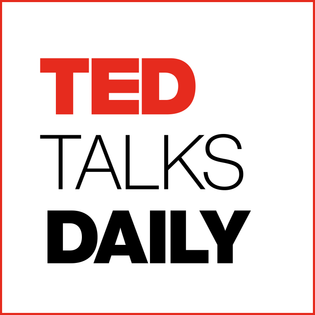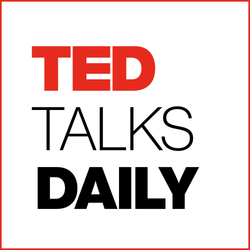
Sunday Pick: Mexico City | Far Flung
•
Harnessing the creativity of a megalopolis isn’t easy, but Mexico City shows us how it’s done. Follow a real-life superhero who dons a luchador mask and cape to protect his fellow residents from speeding cars, learn how citizens are hacking their way to a better public transport system, and see what it takes to crowd-source a constitution from a city with 21 million minds. This is an episode from another podcast from the TED Audio Collective. Get more Far Flung wherever you get your podcasts.
Interested in learning more about upcoming TED events? Follow these links:
TEDNext: ted.com/futureyou
TEDSports: ted.com/sports
TEDAI Vienna: ted.com/ai-vienna
TEDAI San Francisco: ted.com/ai-sf
More episodes
View all episodes

Inside WWE’s storytelling machine | Paul “Triple H” Levesque
34:14|
From his electrifying entrances as a professional wrestler to his current work as WWE’s chief content officer, Paul “Triple H” Levesque knows how to entertain a crowd. In this conversation with TEDSports co-chair Patrick Talty, Levesque pulls back the curtain on WWE’s approach to storytelling, gives a peek at what’s coming next and explains why pro wrestling belongs in the same conversation as the world’s biggest sports.

How we took on an oil giant — and won | Melinda Janki
12:11|
Oil companies may seem invincible, but they are more vulnerable than you think, says climate justice litigator Melinda Janki. She tells the story of how she took on ExxonMobil in her home country of Guyana, notching historic wins against the oil giant — and proving that we can turn existing laws into powerful tools for change.

(#1) Elise’s Top Ten: The psychology of your future self | Dan Gilbert
09:24|
“Human beings are works in progress that mistakenly think they’re finished.” Dan Gilbert shares recent research on a phenomenon he calls the “end of history illusion,” where we somehow imagine that the person we are right now is the person we’ll be for the rest of time. Hint: that’s not the case.

(#2) Elise’s Top Ten: You don’t actually know what your future self wants | Shankar Vedantam
16:04|
“You are constantly becoming a new person,” says journalist Shankar Vedantam. In a talk full of beautiful storytelling, he explains the profound impact of something he calls the “illusion of continuity” — the belief that our future selves will share the same views, perspectives and hopes as our current selves — and shows how we can more proactively craft the people we are to become.

(#3) Elise’s Top Ten: If I should have a daughter … | Sarah Kay
20:40|
“If I should have a daughter, instead of Mom, she’s gonna call me Point B … ” began spoken word poet Sarah Kay, in a talk that inspired two standing ovations at TED2011. She tells the story of her metamorphosis — from a wide-eyed teenager soaking in verse at New York’s Bowery Poetry Club to a teacher connecting kids with the power of self-expression through Project VOICE — and gives two breathtaking performances of “B” and “Hiroshima.”

(#4) Elise’s Top Ten: The power of vulnerability | Brené Brown
21:46|
Brené Brown studies human connection — our ability to empathize, belong, love. In a poignant, funny talk, she shares a deep insight from her research, one that sent her on a personal quest to know herself as well as to understand humanity. A talk to share.

(#5) Elise’s Top Ten: The new political story that could change everything | George Monbiot
17:18|
To get out of the mess we’re in, we need a new story that explains the present and guides the future, says author George Monbiot. Drawing on findings from psychology, neuroscience and evolutionary biology, he offers a new vision for society built around our fundamental capacity for altruism and cooperation. This contagiously optimistic talk will make you rethink the possibilities for our shared future.

(#6) Elise’s Top Ten: Racism has a cost for everyone | Heather C. McGhee
16:13|
Racism makes our economy worse — and not just in ways that harm people of color, says public policy expert Heather C. McGhee. From her research and travels across the US, McGhee shares startling insights into how racism fuels bad policymaking and drains our economic potential — and offers a crucial rethink on what we can do to create a more prosperous nation for all. “Our fates are linked,” she says. “It costs us so much to remain divided.”









